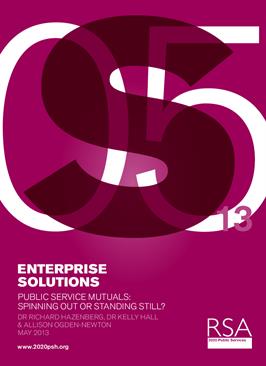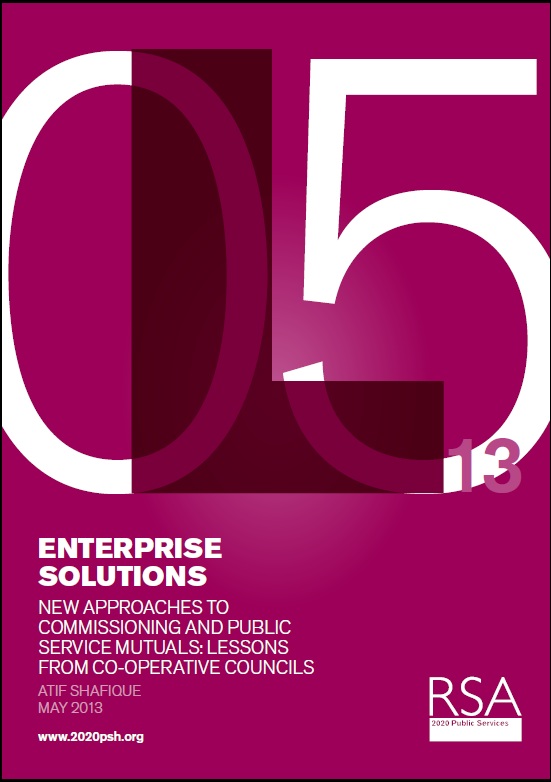Richard Hazenberg and Kelly Hall from the University of Northampton and Allison Ogden-Newton, Chair of the Transition Institute, consider how a more nuanced discussion of where, and under what conditions mutualisation brings social and financial value would be helpful.
In his conclusion, Paul Buddery suggests that, just as the Enterprise Solutions project has itself seen a range of solutions, including but not limited to mutualisation, so the future of spin-outs is likely to take a number of different forms. Employee led mutuals may grow but so too will collaborative models, joint ventures, asset transfers and in house trading companies.
As the appetite for spin-outs increases and new providers move into delivery, important opportunities arise for reviewing the evidence. It is important to assess the extent to which social enterprises and mutuals will or will not be able to effectively involve service users and deliver more efficient, responsive and high quality services than the public sector.
pdf 380.8 KB
Contributors




To correct this error:
- Ensure that you have a valid license file for the site configuration.
- Store the license file in the application directory.
Related reports
-
New approaches to commissioning and public service mutuals: lessons from co-operative councils
Central government and local authorities are recognising that new and more strategic approaches to commissioning are vital for ensuring the long-term sustainability of public services.
-
A Practitioners’ Guide to Spinning Out
This is a guide written from the practitioners’ point of view. It gives an honest, realistic and open account of what a commissioner or senior manager is likely to experience in the journey from in-house public service to spin-out mutual.
-
Barriers and Solutions to Public Sector Spin-outs
Barriers and Solutions looks at the range of challenges facing services considering spinning out. It considers how solutions other than straight mutualisation.




Be the first to write a comment
Comments
Please login to post a comment or reply
Don't have an account? Click here to register.